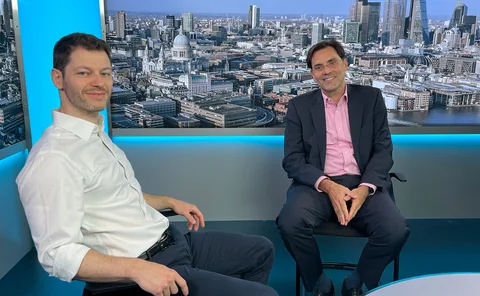Transaction costs
Supervised similarity for firm linkages
Quantum fidelity is used to capture dependency structures in equity
Podcast: Alvaro Cartea on collusion within trading algos
Oxford-Man Institute director worries ML-based trading could have anti-competitive effects
Quarter-ends add $184bn to FX swap costs, study finds
Academics observe 36% increase in bid/ask spreads in short-tenor liquid currency pairs at quarter-end
The cost of mis-specifying price impact
Expected returns can be significantly affected by the wrong use of impact models
How patchy liquidity is stymieing systematic credit
…and what investors like AllianceBernstein, Man Numeric and Acadian are doing about it
Exploiting causal biases in market impact models
Model calibration gains efficiency by including biased but adjusted trading data
An optimal control strategy for execution of large stock orders using long short-term memory networks
Using a general power law in the Almgren and Chriss model and real data, the authors simulate the execution of a large stock order with an appropriately trained LSTM network.
Podcast: Barzykin and Guéant on FX market-making
Industry quant teams up with academics to build better risk tools for FX markets
Dealing with multi-currency inventory risk in FX cash markets
A market-making model that considers correlation, transaction costs and market impact is presented
Momentum transformer: an interpretable deep learning trading model
An attention-based deep learning model for trading is presented
Dealers eye benefits of ‘on-chain’ FX
Automated market-makers are already used for EUR/USD trades – now can they tackle settlement risk?
Shifting rates throw bond investors off balance
Dearth of bond liquidity forces some traders to offload positions – but, as ever, others are waiting to pounce
Optimal trade execution with uncertain volume target
This paper demonstrates that risk-averse traders can benefit from delaying trades using a model that accounts for volume uncertainty.
Optimal turnover, liquidity and autocorrelation
A novel optimal execution approach via continuous-time stochastic processes is introduced
Liquidity stress-testing using optimal portfolio liquidation
A methodology to derive liquidation costs and times in OTC markets is proposed
Deep learning for discrete-time hedging in incomplete markets
This paper presents several algorithms based on machine learning to solve hedging problems in incomplete markets.
Podcast: NYU’s Kolm on transaction costs and machine learning
TCA methodologies that ignore partial fills “might be off by 20% to 30%”
A principled approach to clean-up costs in algo trading
The opportunity cost associated with the cancelled portion of an order is quantified
The effects of transaction costs and illiquidity on the prices of volatility derivatives
This paper employs a PDE approach to price several volatility derivatives under different transaction costs and illiquidity models.
Podcast: Barclays’ Ben Burnett on how banks can implement HVA
New valuation adjustment may lead to more efficient management of derivatives books
Putting the H in XVAs
Barclays quant proposes methodology for factoring hedging costs into derivatives valuations


















